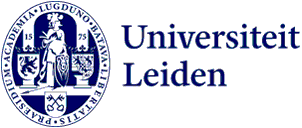
Anthropologist working for the government
Saskia van Otterloo works as a policy advisor on climate adaptation at the Ministry of Infrastructure and Water Management in the Netherlands. She graduated in 2015 with a bachelor's degree in cultural anthropology and development sociology. How does her knowledge of anthropology help her in her job?
Saskia about her job at the Ministry of Infrastructure and Water Management
Due to the selected cookie settings, we cannot show this video here.
Watch the video on the original website orCuriosity is a skill
"In my job, I focus on three key areas: climate justice, involving people in decision-making, and effective communication. We're working on policies and strategies to better deal with climate change impacts in the Netherlands. Being naturally curious has been a valuable skill for me, something I was encouraged to develop during my studies. It enables me to delve deep into understanding the reasons behind how things work. My education also stressed the importance of being objective and staying neutral, which are crucial in my role as a consultant in government."
Anthropological principles
"I have only been in this position since August. At the moment I'm working on a participation plan for the Dutch National Adaptation Strategy, which is currently being updated. In this process, I'm using anthropological principles and methods to guide how I engage with people. This means thinking carefully about who I need to talk to and understanding the reasons why.”
Anthropologists bring fresh perspectives and a 'social' way of thinking
"Anthropologists offer fresh perspectives and emphasise a 'people-centred' approach. Unlike some others in our field who may focus solely on technical solutions, anthropologists understand that many climate adaptation challenges are deeply rooted in human behaviour and cultural norms. We always keep in mind that the solutions we develop are meant to serve people. Engineers, on the other hand, can sometimes overlook this aspect and prioritise the structures they build over the people who will interact with them.”
Advice to students: anthropological skills are transferable skills
"Think of your anthropological skills as transferable skills. Writing, speaking, interviewing, reading, researching are skills that can be transferred to many different interesting jobs. It's important to decide whether you're attracted to research or applied anthropology. Applied anthropology is important because it can be used effectively in a wide range of sectors, and its relevance is growing all the time".”
